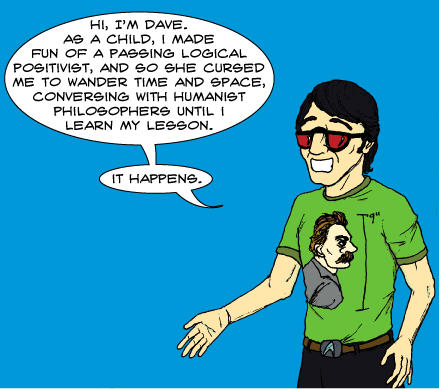This issue is, I think, specific to the 16th-century milieu of western Europe, with the Reformation and the Council of Trent. The Protestants proclaimed sola scriptura, while the Roman Catholics proclaimed Scripture plus Tradition. It is to be expected that a western Christian would basically ask, “Where do the Orthodox fit into our 16th-century fight?” On this as on so many different issues, the Orthodox do not fit into the western paradigm. “Come on! Cut the nonsense and tell us where you fit in!” Trust me. We don’t fit. It’s like asking if a piece of granite is closer to female or closer to male. The granite does not fit into the Protestant-Roman Catholic spectrum.
We have to remember the huge fact that printing basically did not exist until after the fall of Constantinople in A. D. 1453. Printing is a modern invention. That means that for more than 1,500 years, at least 99% of Christians did not have access to written scriptural texts. The few written texts (all laboriously and therefore expensively copied by hand) were in the possession of the clergy and of monks and of a few rich men. Now let us in our imaginations go inside 11th-century Hagia Sophia, the biggest church in all of the Orthodox world. It stood in Constantinople, the capital of the Christian Roman Empire. All the riches of the world flowed into it. Almost every square inch of its walls was covered in mosaic icons made of gold, semi-precious stones, and gemstones, done by the finest artists of the Empire. The building itself was the largest in the western world. The Roman Emperor himself and all his family regularly attended liturgy in Hagia Sophia. My point is that Hagia Sophia lacked for nothing. If the Orthodox Church thought something was even a little bit important, Hagia Sophia had it in spades.
Now imagine attending liturgy there. You will notice that virtually the entire liturgy consists of extensive quotations from scriptural texts, along with close meditations upon those texts. You’ll notice that those chanting the texts are doing so from large volumes covered in pure gold. If you draw near you will see that these scriptural texts are read from the following four different volumes from amongst an entire library of volumes (including the multi-volume Menaion, the Festal Triodion, the Pentekostarion, etc.):
The Prophetologion
The Psalter
The Apostolos
The Evangelion
If you look through these above four volumes, you will notice that all but the Psalter are arranged according to the calendar. Each of these three starts with September 1 (the Church’s new year) and ends with August 31. As you page through the Prophetologion, you will see that it consists of readings (averaging, perhaps, 15-20 verses each) from the Septuagint. The Apostolos consists of readings from Acts and from the Epistles of the Apostles James, Peter, John, Jude, and Paul. The Evangelion consists of readings from the Gospels of Saints Matthew, Mark, Luke, and John. The Psalter has 150 Psalms grouped into 20 sections called kathismata, along with the Nine Odes.
On any given day of the year, the Church has prescribed readings from each of the above four tomes. These readings are done in the context of the liturgy. They are preceded and followed by the Church’s presentation and interpretation of the texts. They are certainly not presented in a vacuum. Further, they are chanted in the midst of a church building full of iconography, which is rigorously defined (particularly by the Seventh Ecumenical Council) in terms of its subject matter and in terms of its style. Additionally, the icons are not arranged haphazardly, but are instead arranged in a precise manner, radiating out from the icon of Christ Pantocrator (Greek for “Lord of the Universe”) done in mosaics on the dome overhead.
Take all of that together in one indivisible and organic whole: That is the liturgy. That is the teaching of the Church. That is the word of the Apostles given them by Christ.
WHOOSH! OK. Back to the 21st century. As you think about what you experienced and saw, you would realize that you never saw what you would call a “Bible”, complete with 66 books starting with Genesis and ending with Revelation. There was no one part of the liturgy that you could extract from the rest and have it sit in judgment on other elements of the liturgy. It is as though someone sneaked into the Church and grabbed (from amongst twenty or so volumes) the Prophetologion, the Psalter, the Apostolos, and the Evangelion and proceeded to cut them up, throw away parts, keep other parts, and re-arrange the kept parts. Then he held aloft that resulting book cut-and-pasted together (newly christened as “the Bible”) and said, “This condemns everything else in this building!”
But on top of that, the Bible thus assembled from parts of the Prophetologion, Psalter, Apostolos, and Evangelion would be incomplete. Where is the book of Revelation? Where is the book of Esther? They are totally absent! The Psalms, Gospels, Acts, and Epistles are all complete, but much of the Old Testament is missing! Where are the other 25 chapters of Leviticus? Where is most of Job? Etc.
Qaz, I don’t know if you will find all of this a satisfactory answer or not, but it’s the best I can do. You asked a simple question, but I’m afraid that I do not have a simple answer for you. Kind of like asking a gentle man the following yes-or-no question: “Have you stopped beating your wife yet?” He cannot truthfully answer with a simple yes or no, but must give a more complicated answer that denies the assumptions of the question.



















